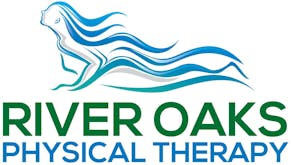Alzheimer's disease is a chronic, progressive, degenerative condition that causes patients to gradually lose their memory and, over time, other bodily functions. It is widely considered a disease that can rob individuals of their dignity and independence.
Traditional medicine has been unable to find a cure, although it is possible to slow down the rate at which the disease progresses. Exercise helps maintain quality of life, and it becomes even more important as the disease progresses.
Why physical therapy?
Physical therapists are licensed professionals, trained to help patients with several types of neurological disorders including Alzheimer's. The therapist can recognize the challenges associated with different stages of the disease and can design a treatment program as an adjunct to traditional medical treatment.
Living With Alzheimer's
The benefits of physical therapy include:
- Better balance and reduced risk of falls
- Improved muscle tone and strength
- Increased independence
- Planning for assistive devices to enable daily activities
Treatment approaches include:
1. Balance therapy
This consists of specific exercises to improve balance. These exercises can involve simple tasks like standing on one leg or standing with the feet close together. Assistive devices may be provided to improve safety. Supervised balance therapy enables the patient to improve gradually, and the dependence on assistive devices is gradually reduced.
2. Therapeutic exercise
Brisk walking and swimming are examples of exercises that can improve mobility, muscle tone and blood circulation. The therapist will supervise the patient at all times. Stretching exercises help to minimize muscle tightness.
3. Massage therapy
This form of treatment is primarily aimed at calming the patient and reducing stress level. Alzheimer's patients understandably experience a degree of frustration. Emotions can run high. Verbally calming the patient is useful, but the effect of touch and massage therapy is extremely useful.
4. Assistance with activities of daily living
In severe cases, the loss of independence is so significant that a patient cannot bathe or use the bathroom independently. Physical therapists are able to help patients learn to manage these tasks with a combination of exercises and assistive devices.
We are a Team
Physical therapy helps maintain the patient's independence and dignity as much as possible. The truth is, Alzheimer's gets worse over time and can affect memory, thinking and behavior. This takes a significant toll on family members from an emotional and physical standpoint.
As an integral part of the healthcare team, the physical therapist will design a home exercise program and work closely with family members to care for the patient. The therapist can educate family members about the do's and don'ts of exercises and daily activities, in addition to helping prepare a safe home environment for the patient.
The majority of Alzheimer's patients are aged 65 or older, but this is not a normal part of aging. If you suspect that someone may be suffering from Alzheimer's, have him or her give us a call.
We want to help everyone live with freedom and dignity. We are here for you and hope to be of service.

